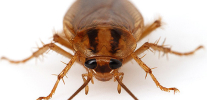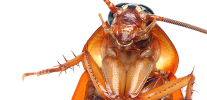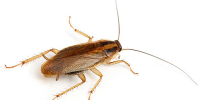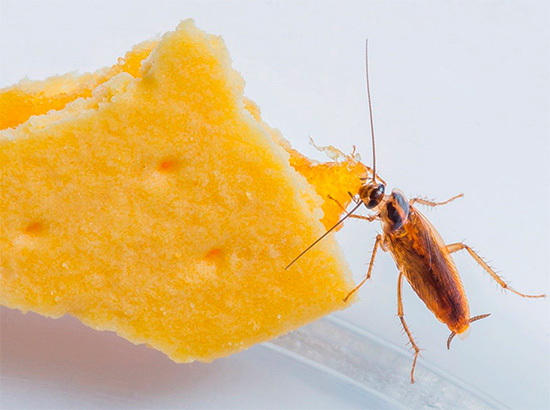
Next you will find out:
- Why cockroaches are called Stasik, and whence does such a nickname come from;
- How the presence of antennae in cockroaches could influence the appearance of other funny names;
- Why in Russia cockroaches are called Prussians, and in Germany - hares;
- And also a few words about “felix”, “tanchik”, “zhevzhikah” and other names of cockroaches, including scientific ...
In the people of cockroaches are called not only Stasik - in fact, the popular names of these pests are great. Often nicknames baleen housemates are given on the basis of consonance with their scientific name (Red cockroach). For example, there are "tanchiki", "trams" and "mushrooms".
Less commonly, the national names reflect the characteristic features of the structure of these insects, in particular, the whiskers.If for someone the mustache is similar to Dzerzhinsky, then why not call them “felixes”.

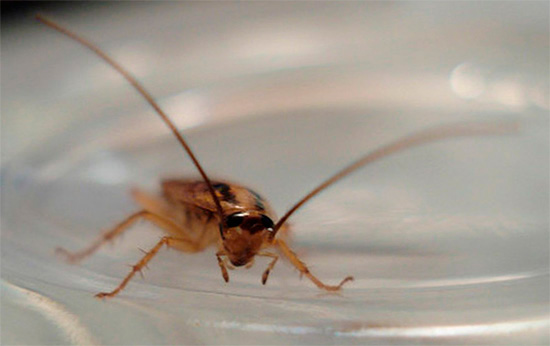
But in some cases these insects are called so that even with a careful search for the source of the nickname, it is rather difficult to figure out how it appeared. For example, it's hard to say at once why cockroaches are called "Stasic." Let's see what options for explaining such a nickname of cockroaches today exist ...
The history of the nickname "Stas"
For many people, the words “cockroach” and “stasik” are practically synonymous, and today there are several opinions about the origin of such a funny name.
One explanation explains the origin of this name from a popular at one time, but today “bearded” anecdote:
A wolf with a hangover sits holding his head, groans. A cockroach crawls past him. A wolf in a settled voice asks him
- Who are you?
He answers:
- Cockroach ...
- What is your name?
- Stasik ...
The wolf with anger crushes insect paw, saying:
- How I feel bad, Stasik!
However, this version does not provide a convincing explanation of why cockroaches are called Stasikami in the Northern Urals and in Ukraine,and even in Transbaikalia. Still, the anecdote was not so popular ...
It is believed that cockroaches called Stasik for their mustache. In the past, it was noticed that men, who are called Stasami, often wear a mustache, and therefore for this similarity they gave a nickname to their housemates. Accordingly, the mustache cockroach, being a small creature, was called not Stas, but Stasik.
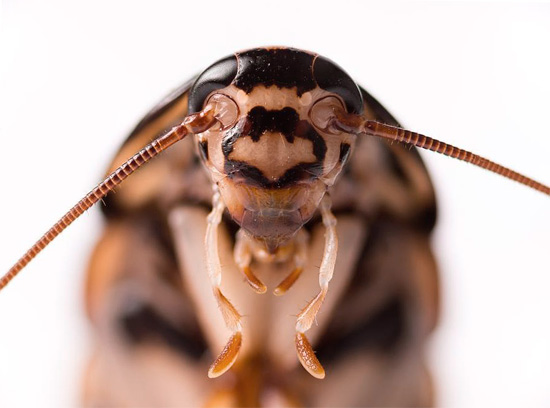
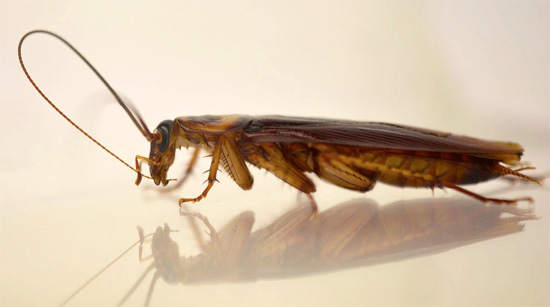
On a note
There is even a version that cockroaches were called Stasiki because of the consonance of the name “Stas” with an obscene nation-wide designation for a man with a non-traditional sexual orientation. Say, sometimes pests in an apartment so annoy the owners, and it is so difficult to get rid of them, that those in their hearts call them such an incongruous term. And then, with children, they no longer can afford to repeat such filth, and therefore they say “Stas”. And being in good spirits, when the insect does not seem to be such a big problem anymore, the person calls him and more gently - Stasik.
This version, by the way, is confirmed by the fact that in some Ukrainian cities and in the south of Russia “pubic lice” are also called “Stasiki”. In the navy and in places of detention it was believedthat it is during homosexual contacts that people most often become infected with these parasites, and therefore they were called obscene at first, then more politically correct "Stas", and then very gently "Stas". And in the future, and other synanthropic insects began to be called the same.
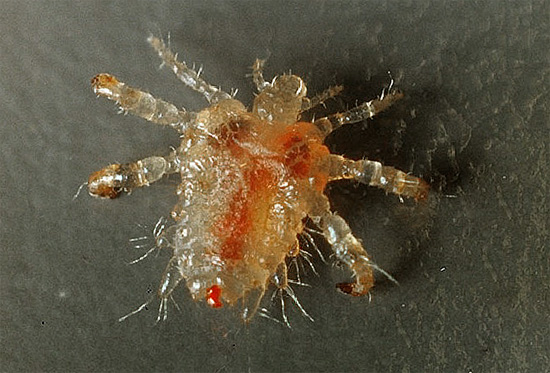
By the way, cockroach mustache differently explains the origin of the nickname "Stasik." The fact is that in different languages the translation of the word "mustache" is quite consonant with this nickname:
- the English word "mustache" has the ending "-stach";
- Italian "mustacchi" ends in "-stachi";
- French “mostaccio” - and does sound like “Costalcio”.
All these words are derived from the Greek "mustak" (and ancient Greek μύσταξ), which means "mustache".
In general, of course, it is difficult to imagine that some not very literate reader translated the word "mustache" in the wrong transcription, named cockroaches for them, and people have already picked up this newly invented cockroach nickname. Although - as a variant of origin - this version also needs to be borne in mind.
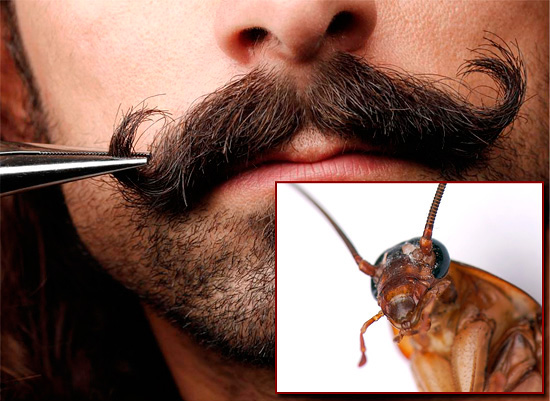
In fact, most likely, several reasons are guilty of the origin of this name. Maritime and prison folklore and the specifics of obscene expressions formed the basis of the anecdote, and it has already spread among the people and became the direct cause of the emergence of the commonly used cockroach nickname.And the cabinet scientists then began to search and found additional confirmations in dictionaries and transcriptions.
Mustaches of cockroaches and their connection to nicknames
By the way, mustaches of cockroaches became the reason for the appearance of other names in them.
For example, the name "Felix" is explained by the similarity of antennae in cockroaches and the famous vegetation on the face of the chief security officer of post-revolutionary Russia - Felix Dzerzhinsky.
However, linguistic scientists, again, have their own explanations on this score:
- in Latin felleus means jaundiced, and ordinary Prusaks could well be called by this word lovers of elegant literature even in post-Petrine Russia; from “Felleus” to “Felix” - one step of a batman or servant;
- in German, the mustache is Schnurrbart, and some Russianized Germans could well have called insects Shurbarts, and the peasants who communicated with them adopted their habit and, for simplicity, altered the nickname in Shurikov.
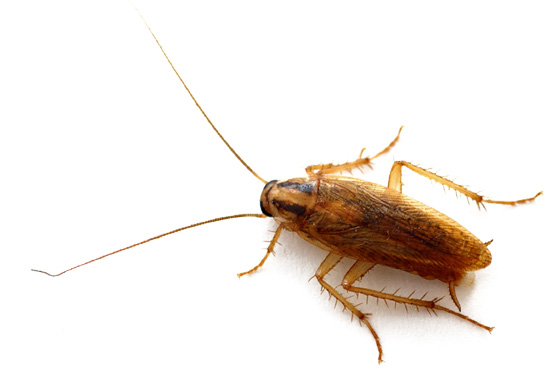
However, again, such versions are not sufficiently substantiated, and can only be considered as additional. As a rule, literate people who know that a cockroach has a mustache are necessary for survival, because with their help it perceives, smells, and even hears to a certain extent, does not draw parallels between insects (also called antennas) and humans.But only such educated people could know foreign languages and use them in everyday life on a par with Russian, so that the pest's nickname would be fixed.
So prusak or still hare?
Another interesting nuance that influenced the names of red cockroaches is related to the versions of their original homeland.
The well-known name of the ordinary red cockroaches - "Prusaks" - due to the fact that the main invasion of these baleen insects on Russia began in the era of the Napoleonic wars, when Prussian soldiers in the army captured, and then left many cities and villages in the European part of the country. The people had the impression that it was with Prussian soldiers that small pests came, for which this shortened nickname, Prusac, was fixed.
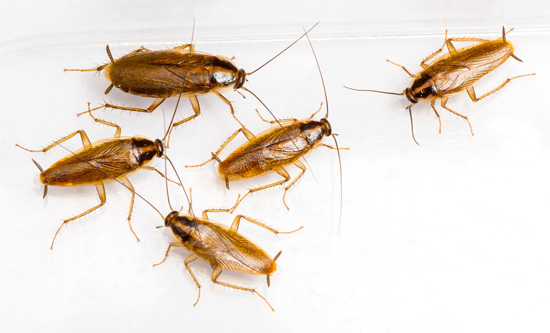
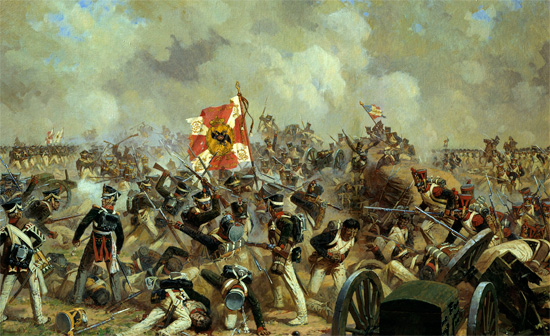
A symmetrical situation at the same time arose in Prussia itself, in which Russian troops regularly rolled in at the same time. And here the red-haired cockroach bred in huge quantities, and here the local population decided that insects came to them with Russian soldiers, and called this type of hare cockroach. A similar situation took place in the Balkans, where red cockroaches are called "Russian beetles" (bubars).
However, officially in Latin, the red cockroach is called Blattella germanica - “German cockroach”; in other words, in 1767 Karl Linney was in agreement with the Russian peasants, finding that the source of the spreading pests, from which it can be so difficult to get rid of, is precisely Germany.
It is interesting
In the eastern part of Germany, the red cockroach is called "Russian", and in the western part - "French." So the inhabitants blamed their nearest neighbors for infecting the country with this pest.
It is interesting that even today, when finding apartments in cockroaches in their premises, the residents often begin to look askance at their neighbors.
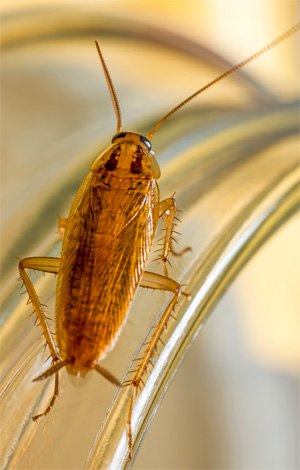
It is clear that neither the Russian nor the Prussian versions with a high probability do not reflect the actual state of affairs. The common red-haired cockroach approximately at the same time penetrated both Europe and Russia, and this happened much earlier than common names appeared.
The point here is that large-scale military operations simply coincided in time with a surge in the population of cockroaches in Europe and in Russia — it was during this period that the common cockroach began to crowd out its black relatives (Blatta orientalis).People took the cockroach invasion as a consequence of the war, and they themselves - for the satellites of the invaders.
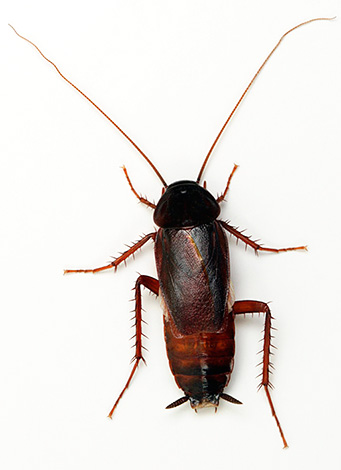
However, it was because of the location of its intended homeland and other types of cockroaches got their names.
What is another name for cockroaches in different countries?
Having a longer history of human interaction, the black cockroach is scientifically called the eastern cockroach. In its Latin name - Blatta orientalis - the word blatta means a cockroach, orientalis - oriental.
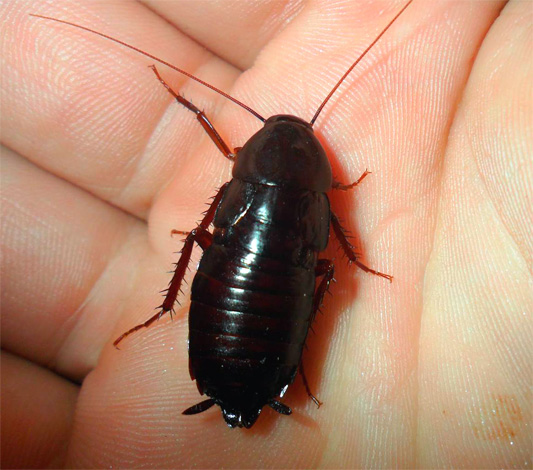
But in Germany and in Serbia the same black cockroach is called German. Its exact name in Serbia is bubashvaba, which translates as “German bug”, although it penetrated into Germany from Asia.
There are other names that speak about the actual or supposed homeland of insects:
- American cockroach. This name is inherently wrong: the insect really began to penetrate into Europe from America, but it also got into America itself during the colonial wars from Africa on ships with slaves;
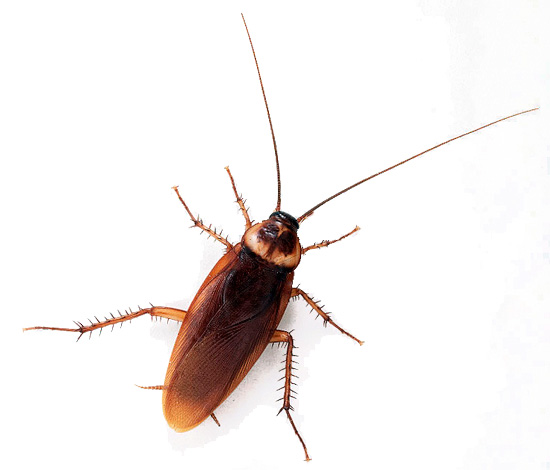
- Madagascar cockroach, really found in nature only in Madagascar;
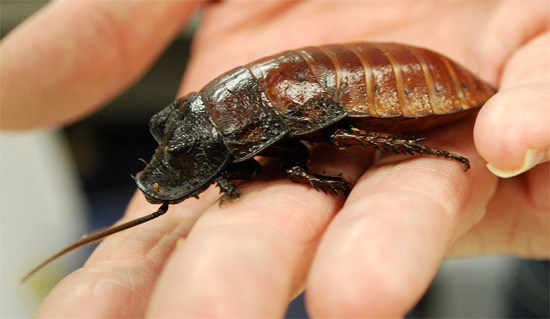
- Turkmen cockroach living in Central Asia;
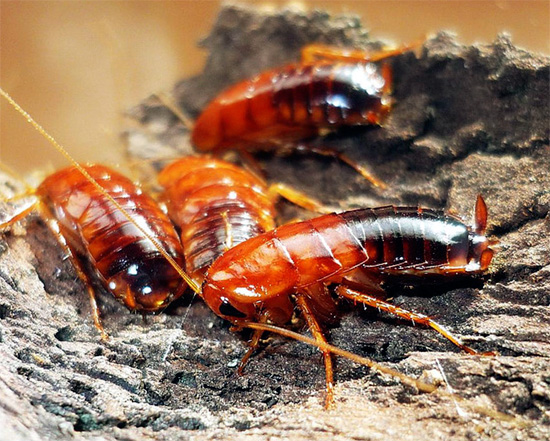
- Lapland cockroach, distributed mainly in Scandinavia;
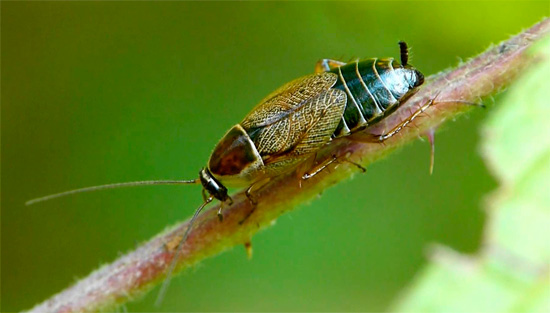
- The Australian giant cockroach comes from Australia, as the name implies.
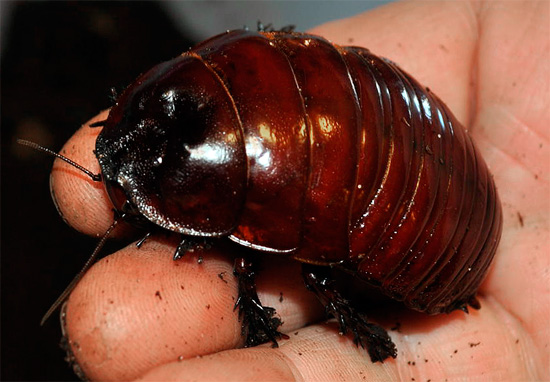
However, these are only the official names of these insects. In common parlance, domestic baleen pests in Russia alone are called very differently (besides the options already discussed above):
- “Tanchiki” - simply because of the consonance of words;
- "Trams" - for the same reason;
- “Zhevzhikami” - the etymology of this name is not known.
The word “cockroaches” itself has, most likely, Turkic roots. It was the inhabitants of the ancient Kazakh steppes who called these insects "kara-han", which translates as "black lord." But there are other versions. For example, in the Chuvash language, tar-agan (tar-aqan) means “one who runs away,” which is very similar to the behavior of cockroaches when the minimum threat to them appears.
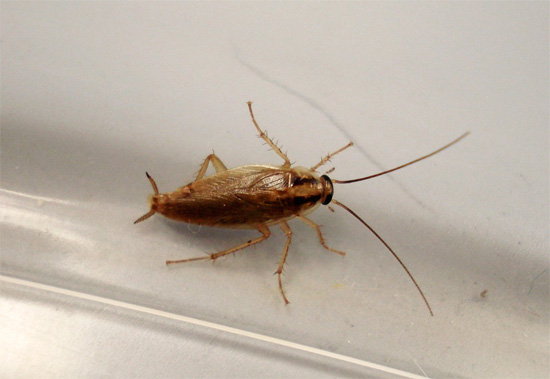
With foreign names cockroaches all easier. The Latin word blatta comes from the Doric and Ionic of the Greek, which translates as “cockroach”. The English cockroach comes from the Spanish cucaracha (kukaracha), which was originally called wood lice, and only later - banana cockroaches.
Original scientific names for cockroaches
There are also interesting and quite scientific names for some other types of cockroaches.
For example, the Dead Head cockroach is so named for the original black design on light gray, almost white wings.
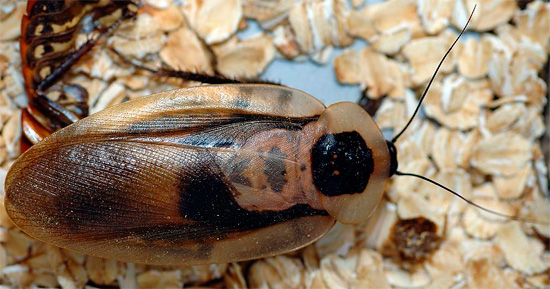
Another cockroach is called a rhino for a characteristic outgrowth on the front flap of the cephalothorax.
There are also cockroaches, avtomobilchiki, named after two bright lime spots on the cephalothorax, with which they frighten off enemies. These spots, even with a modest imagination, are quite similar to the headlights of a car, and therefore the name of the insect did not take long to wait.
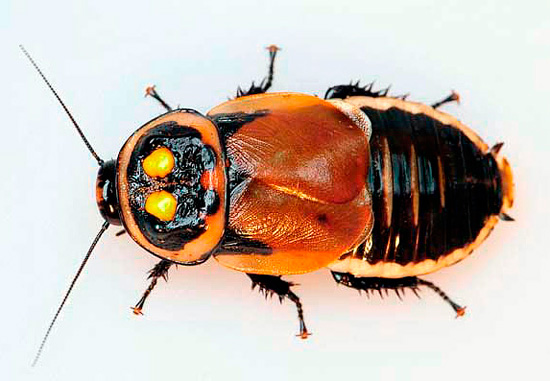
In general, among the cockroaches there are many species with speaking names. These are ash-winged cockroaches with gray wings, and banana populations of banana plantations and in the variety found among banana grapes, and furniture that settle closer to wooden structures indoors ...
But such a quantity of nicknames that a common indoor insect has does not exist in any other species.
Anyway, whether the antennae are “guilty” or places of origin, as long as the cockroach lives “hand in hand” with a person, gets rid of various nicknames (and even, perhaps, the appearance of new ones) it will not succeed ...
Interesting video: Madagascar cockroach "gives birth" to a huge number of small white cockroaches
Some cockroaches not only run fast, but are able to fly ...

